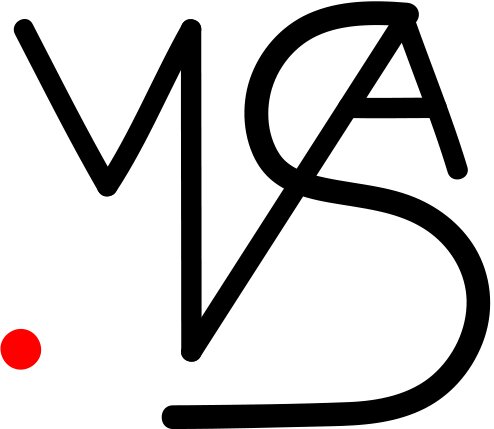Interview with Diálogo 365
My interview with the curator of Diálogo 365, Anabelle Rodriguez-Lawton, has just been published.http://dialogo365.wordpress.com/2012/10/25/maria-schneider-spain/
Maria Schneider (Spain)
October 25, 2012 § Leave a Comment
 Just Go (to the Unknown). Mixed Media on Canvas: 30 in x 34 in, 76.2 cm x 86.36 cm, 2012.
Just Go (to the Unknown). Mixed Media on Canvas: 30 in x 34 in, 76.2 cm x 86.36 cm, 2012.
In this work, I explore the importance of the evanescent moments and what seizing the day means now. “If not now, then when?” Burlap and gauze cloth symbolize the fragility and roughness that surrounds certain decisions in our lives.The crumbling buildings and teared financial newsprint pages, symbols of a uncertain world, cover pictures of people leaving. It is now, or maybe never – one has to seize the moment and just go.
AR-L: How long have you been painting and how did you develop your abstract style?
MS: I started painting about 15 years ago, but it has been in the last 10 years when I really felt I just had to paint. I was in the corporate world, from banking to consulting. I started attending local art centers and the Pennsylvania Academy of the Fine Arts –Painting, drawing, color….Then I moved to New York and registered at the Art Students League. It was a new, marvelous world to me. There were people from all walks of life and a common theme: Art. I loved it. I decided then I really wanted to paint. It made me feel so alive! Art became my self-expression.
My abstract style developed from my years at the Art Students League, my influence from the corporate world, and my deep interest in world events- current and past, and our perception of those events. My first paintings of bulls started with the classical drawing and painting- line, color. But suddenly, I felt that all the images conjured into my subconscious – financial events, economic symbols, iconic images from history – were rushing out. I was also influenced by Roland Barthes idea of different layers of meaning. The bulls are not just bulls but symbols that convey different meanings. It was like a pour of words without talking. Ideas brew in my mind and rushed onto the canvas. I am open to all mediums, because all of them are valid ways to express.
The Running of the Bull Market is one of those paintings. The bull is such a symbol of Spain, even when many young Spaniards disassociate themselves from it. It was the icon of the Etruscans and the Minoans. It is the symbol of the male, the noble, earthy animal, and it is the symbol of wealth and good fortune – the bulls of Wall Street, and the craziness of the financial system. These bull paintings try to conjure it all. The newspaper stock quotes intertwine into the drawing. There are also prints of laws and regulations affixed into the oil paint. The systems run amok. But the beauty of the bull remains.
AR-L: What has your experience as an immigrant in the United States been like?
MS: My experience has been positive but I had to overcome stereotypes. But my accent always gave me away. A few years ago, people did not have a clue where Spain was. They just accepted the media stereotypes. This is much better now. However, I have always felt like an outsider. I remember when I was in the corporate world, I really had to pay attention to my accent. Having grown up in Spain and with a very lousy musical ear, I had to make an effort to pronounce correctly so that people focused on my words not on my accent – If you do not pronounce correctly, many people assume you are not smart or well educated. Art became a way to express myself. Accent did not matter so much.
The United States has given me many opportunities. You can still be in control of your future. Coming into a different culture opened my mind and made me work harder. Being out of my comfort zone, I had to overcome higher barriers and work harder, which helps you in the long run – It takes more energy to come in from the outside.
AR-L: How has the Diálogo 365 initiative impacted your career?
MS: It has been a great opportunity and I am grateful for it. First, the thematic approach pushed me to incorporate new themes into my work. It is fascinating to see how one theme can be interpreted in so many different ways. Diálogo 365 exposed me to a wider audience and connected me to many other artists with a common background. It is not easy to find opportunities where our voices can be heard, where the audience is willing to hear a different tone. Diálogo 365has provided that for me.
AR-L: What are some of your current and upcoming projects?
MS: I am working on a new group of paintings of cities and, in particular, my adopted city, Philadelphia. I am really fascinated by Philadelphia now. It is one of the coolest cities in the US, with all the pros and cons. I love its energy and I want to use the images that come to my mind. In these paintings I incorporate the layers as social strata as I had done with the bull paintings or my more abstract paintings such as My Thoughts on the Spanish Crisis. I am also working on conceptual sculptures on the economic crisis. I have a lot of fun making these sculptures. They pop up in my mind and I have to execute them. It is a very down to earth process.
I am also very excited about some new materials I am working with – metal, acrylic – and new printing processes. I am like a little kid that gets very excited about learning and experimenting with new things.
I am also revamping my web page. I am including my new paintings and sculptures and giving it a fresh appeal. I will keep on blogging too. But I want to concentrate on my painting and sculptures. I have so many ideas….
AR-L: Please share a favorite recipe with our readers in time for the holidays.
MS: There are two simple dishes that I love to cook over the holidays because they remind me of my home: Roasted Lamb and Rosemary Yams and Potatoes.
Roasted Leg of Lamb
- Leg of Lamb
- 3 or 4 medium cloves of garlic (depending on the size of the leg)
- ¼ cup of parsley leaves
- ½ cup virgin olive oil
- Salt to taste
The most important ingredient is a young tender leg of lamb. We call it “Cordero Lechal” because it is just milk-fed. The day before, crush garlic and fresh parsley in a mortar. As the pestle crushes the garlic and parsley, start adding virgin olive to the mix. When there is a fine paste, add more olive oil enough to cover well the leg. Put it in a tray (not plastic) and covered well with aluminum foil or a lid and refrigerate for 8 to 24 hrs. The next day heat the oven at 400 F. (roast setting). Place the leg of lamb into an oven-proof tray (best in a glazed clay pot – cazuela de barro), add salt to the leg and some fresh pepper and start roasting. When roasted on both sides (about 20 minutes on each side) lower the temperature so that the lamb gets done without getting dry. Use a meat thermometer to gauge doneness, but do not overcooked it. Cover it with aluminum foil to avoid excessive burning, if necessary.
Potatoes and Yams with Rosemary
- Orange Yams (2 small per person)
- Yukon Gold potatoes (2 small per person)
- Fresh rosemary minced
- Salt to taste
Once the lamb is in the oven, peel the potatoes and yams and rough-cut them. Put them in a roasting tray with salt and fresh crushed rosemary sprinkled with olive oil. Place them in the same oven as the lamb, but not the same pan. Let them cook together for about 45 minutes. Turn them once to make sure the roast and do not stick to the pan.


